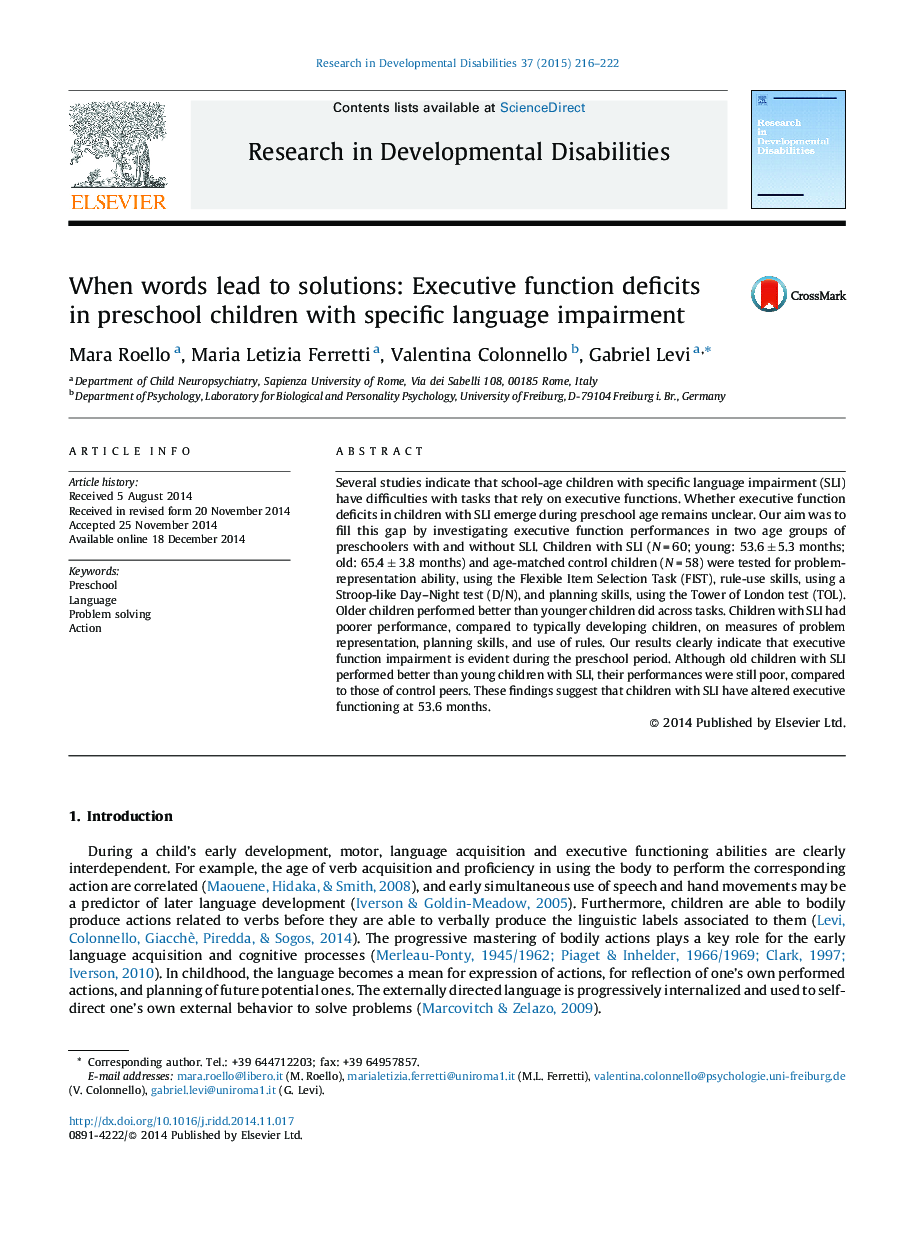| Article ID | Journal | Published Year | Pages | File Type |
|---|---|---|---|---|
| 371323 | Research in Developmental Disabilities | 2015 | 7 Pages |
•Preschoolers with specific language impairment show problem solving difficulties.•Problem-solving performance improves with age.•These findings underscore the link between language and reasoning development.
Several studies indicate that school-age children with specific language impairment (SLI) have difficulties with tasks that rely on executive functions. Whether executive function deficits in children with SLI emerge during preschool age remains unclear. Our aim was to fill this gap by investigating executive function performances in two age groups of preschoolers with and without SLI. Children with SLI (N = 60; young: 53.6 ± 5.3 months; old: 65.4 ± 3.8 months) and age-matched control children (N = 58) were tested for problem-representation ability, using the Flexible Item Selection Task (FIST), rule-use skills, using a Stroop-like Day–Night test (D/N), and planning skills, using the Tower of London test (TOL). Older children performed better than younger children did across tasks. Children with SLI had poorer performance, compared to typically developing children, on measures of problem representation, planning skills, and use of rules. Our results clearly indicate that executive function impairment is evident during the preschool period. Although old children with SLI performed better than young children with SLI, their performances were still poor, compared to those of control peers. These findings suggest that children with SLI have altered executive functioning at 53.6 months.
